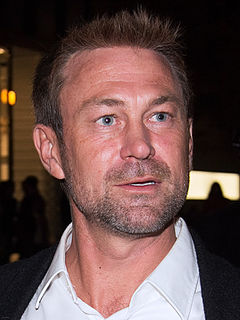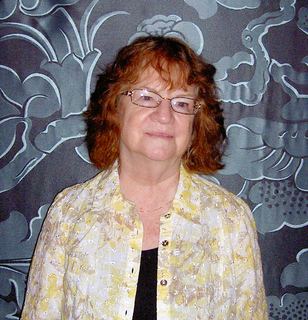A Quote by Grant Bowler
I think that the way of bringing realism into fantasy is to treat it as the commonplace.
Related Quotes
I really wish that peoplewould just say, 'Yes, it's a comic. Yes, this is fantasy. Yes, this is Science Fiction,' and defend the genre instead of saying, 'Horror is a bit passe so this is Dark Fantasy,' and that' s playing someone else's game. So that's why I say I'm a fantasy writer and to hell with 'It doesn't read like what I think of as a fantasy'. In that case what you think of as a fantasy is not a fantasy. Or there is more to it than you think.
So many people think that if you're writing fantasy, it means you can just make everything up as you go. Want to add a dragon? Add a dragon! Want some magic? Throw it in. But the thing is, regardless of whether you're dealing with realism or fantasy, every world has rules. Make sure to establish a natural order.
It is in the capacity to love, that is to SEE, that the liberation of the soul from fantasy consists. The freedom which is a proper human goal is the freedom from fantasy, that is the realism of compassion. What I have called fantasy, the proliferation of blinding self-centered aims and images, is itself a powerful system of energy, and most of what is often called 'will' or 'willing' belongs to this system. What counteracts the system is attention to reality inspired by, consisting of, love.
At its best, fantasy rewards the reader with a sense of wonder about what lies within the heart of the commonplace world. The greatest tales are told over and over, in many ways, through centuries. Fantasy changes with the changing times, and yet it is still the oldest kind of tale in the world, for it began once upon a time, and we haven't heard the end of it yet.
The dynamic principle of fantasy is play, a characteristic also of the child, and as such it appears inconsistent with the principle of serious work. But without this playing with fantasy no creative work has ever yet come to birth. The debt we owe to the play of imagination is incalculable. It is therefore short-sighted to treat fantasy, on account of its risky or unacceptable nature, as a thing of little worth.
Fantasy is escapism, but wait... Why is this wrong? What are you escaping from, and where are you escaping to? Is the story opening windows or slamming doors? The British author G.K. Chesterton summarized the role of fantasy very well. He said its purpose was to take the everyday, commonplace world and lift it up and turn it around and show it to us from a different perspective, so that once again we see it for the first time and realize how marvelous it is. Fantasy - the ability to envisage the world in many different ways - is one of the skills that make us human.


































